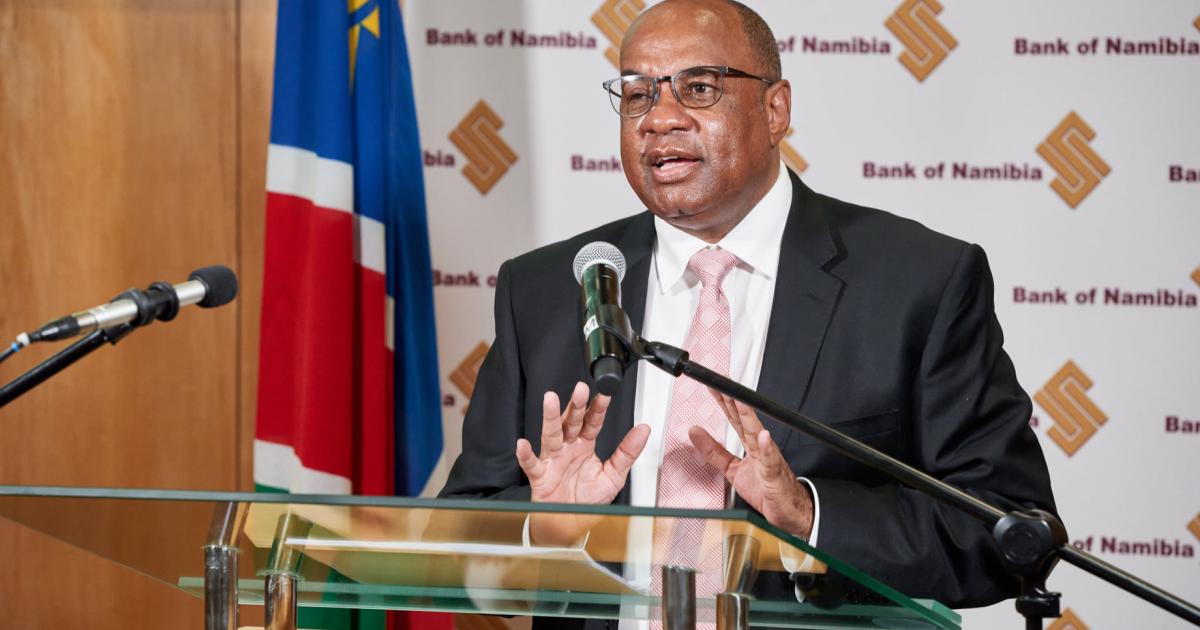Namibia’s financial crime watchdog, police, and Anti-Corruption Commission (ACC) have fallen short of meeting international standards, potentially exposing the country to sanctions says Bank of Namibia governor Johannes !Gawaxab.
!Gawaxab was speaking during a press conference in Windhoek announcing changes to the repo rate recently.
!Gawaxab said if these institutions do not tighten the domestic anti-money laundering and financing of terrorism regime, the country risks being greylisted.
South Africa and Nigeria are the latest African countries to be added to the grey list, maintained by the Financial Action Task Force (FATF), a global money laundering and terrorist financing watchdog.
Namibia, as a member of the United Nations (UN), falls on the list of countries that have to be assessed for compliance.
“We have been assessed and we have been found wanting on five out of the 11 outcomes. We have been told you need to fix those. That means that we need to amend 11 acts [laws] that we have currently and we need to come up with two new ones,” he said.
The two new ones relate to virtual assets and virtual asset providers, while the other is around trust, !Gawaxab said.
The Financial Intelligence Centre (FIC) is spearheading the drive to ensure that Namibia meets the necessary compliance levels.
But !Gawaxab said success depends on the ability by various offices, ministries and agencies to collaborate and strengthen the country’s money laundering and financing of terrorism regime.
He said the police must investigate cases, the Prosecutor General must prosecute culprits and the ACC must move with equal speed.
Other stakeholders tasked with ensuring Namibia is able to demonstrate its regime is up to standard are home affairs and the FIC.
“I think we are making good progress. It’s preventable, but we all have to come to the table. All institutions, offices, ministries, agencies, and our judiciary need to demonstrate the effectiveness of the regime,” he said.
The Bank of Namibia last year briefed the Cabinet on what needs to be done to avoid the grey list, as well as to inform it on the need to update 11 of Namibia’s laws and establish two more.
“As a country, we need to demonstrate the effectiveness of the anti-money laundering and terrorism financing regime. Cabinet approved this in December 2022. And currently, of the 11 laws that we need to deal with, my understanding is that eight have been completed or have gone through the Cabinet’s committee of legal affairs. They still need to deal with the other five.”
“Once that has been finalised, currently some of them are with the legal drafters, then it gets to our parliament. By June, Namibia needs to submit a report to FATF on whether we meet those requirements. This report will be assessed in September.”
Although Namibia has been found wanting on its legislation, the governor, however, was upbeat this week, saying the greylisting could be avoided.
According to the Institute of Security Studies (ISS), headquartered in Pretoria, South Africa, most analysts believe greylisting has considerable negative effects on a country’s economy, including discouraging investment.
“Some, for example, require fund managers to apply greater diligence before investing in greylisted countries. An International Monetary Fund study estimates that countries have on average experienced capital outflows equal to 7,6% of GDP after greylisting,” said the ISS.
So far, the United States (US) government imposed financial and other sanctions on four South Africans thought to be channelling funds to the Islamic State in Mozambique and elsewhere in Africa, said the ISS.
But !Gawaxab submitted that progress was being made in Namibia.
“There are some special courts that have been put up to deal with some of these cases. Greylisting is not good for the country. It’s going to impact trade, it leads to an increased risk premium of Namibia, borrowing costs will increase, cross border transaction costs will increase, it will limit the country’s ability to do business effectively.
“In some cases we have countries that are greylisted, some investors opt to move to domicile their business to more compliant jurisdictions, while new investors are looking for more compliant jurisdictions. It’s simply detrimental to our capacity to attract foreign direct investments,” he said.
Greylisting will also mean that financial institutions and borrowers in Namibia will be subjected to undue diligence by international financial institutions.
Stay informed with The Namibian – your source for credible journalism. Get in-depth reporting and opinions for
only N$85 a month. Invest in journalism, invest in democracy –
Subscribe Now!










